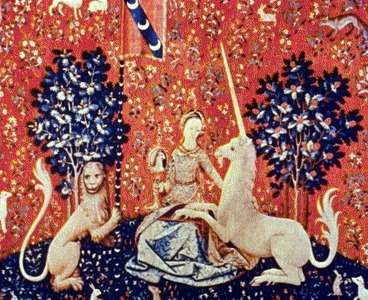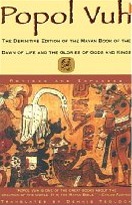

|
| ||||||||||||||||||||||||||||||||||||||||||||||||||||||||||||||||||||
|
||||||||||||||||||||||||||||||||||||||||||||||||||||||||||||||||||||
|
| ||||||||||||||||||||||||||||||||||||||||||||||||||||||||||||||||||||

the essential nature of myth—Page 3belief, disbelief, and mythNo one alive today seriously believes that metallic octopus arms implanted in a person's back can be sources of power or that time can be reversed by circling the earth backwards. Moderns are too savvy; they instinctively understand that powers like these are dramatic inventions. In dramatic works, these kinds of bald departures from fact are instances of a kind of human capacity for belief that was elegantly described by William Taylor Coleridge in his Biographia Literaria. Coleridge called that capacity, That willing suspension of disbelief for the moment, which constitutes poetic faith. A person having poetic faith is capable of intellectually identifying with or vicariously experiencing the feelings, thoughts, or attitudes of another. In connection with myth, a person with poetic faith can imaginatively ascribe to a dramatic or literary work feelings and attitudes present in himself. He has empathy. The phenomenon of temporary suspension of disbelief goes back as far as recorded time. Mankind has displayed a capacity to willingly suspend disbelief for as long as dramatic presentations have been enacted; indeed, you can't have one without the other. The age-old need to experience awe, excitement, and variety is perennial. Moderns have the same need to understand and to marvel at life's mysteries as did their forefathers. Stories like Spiderman, Star Wars, and Superman merely reiterate that truth. Obviously, myths and heroic stories share much in common, but not all mythical tales are stories about heroes. What, then, is the essential difference between a myth, an ancient heroic story, and a modern heroic story?
more about mythic and heroic storiesA story you believe to be real is much more powerful and intense than a story you only temporarily believe. But audiences from cultures other than the culture that originated a story tend to see it as literature or drama instead of as literal truth; they must temporarily suspend disbelief to sit through it. For that reason, for them a mythical or heroic experience is not as powerful or intense. Scholars from other cultures who study a myth or heroic story can be objective about it because they don't interpret it literally. That's why it's likely that the Future you cited in a preceding section might be readier than the contemporary you to scoff at Spiderman, Star Wars, or Superman. For the Future you, temporary suspension of disbelief is as far a stretch to Spiderman as the stretch to ancient Greece may be for the contemporary you. Mythical and heroic stories are hot stuff, each in its own time and place; the crowds love them, fear them, revere them. They feed the needs of their audience. They appeal to what's fundamental in all of us. If mankind is still fundamentally the same as in the past—and it is—it must be the contemporary audience that's out of touch with the ancient stories, not the other way around. Perceptions of reality may change; tastes may change; cultural expectations may change; but people are always fundamentally the same. For that reason, mythic and heroic stories do not vary in essential ways. What people always need from them—what's most important to them—is always the same, too. Their underlying messages and meanings are imperishable. So, who or what is out of tune and out of touch today? Is it the mythic or heroic stories of other cultures or is it the modern audience? To like modern blockbusters but spurn ancient myths or heroic stories just because they're old is to apply a double standard. If contemporary cultures have a right to their own ephemeral cultural prejudices, so do other civilizations and other times. For us to ignore or complain about the stories of other places and times just because they're different is not only impertinent, it's short-sighted. When we apply a double standard, we are not only disparaging other cultures unfairly, we're selling ourselves short. We're missing a golden opportunity to learn and enjoy other bodies of literature, dramas, folkways, insights, and points of view. Respect them; they will still be here long after we're gone. Look deeper. There's a lot to gain from understanding other cultures. Why throw out the baby with the bathwater? mythology
| ||||||||||||||||||||||||||||||||||||||||||||||||||||||||||||||||||||
|
—note—
documents are not myths The Eddas are not a mythology, even though they are
often referred to as such. Eddas are documents. The Eddas do contain
myths—the poems on mythical subjects cited
above; but they also contain poems on non-mythological subjects:
religious subjects, facts, and accounts of the heroic deeds of the
historic Germanic peoples. The Younger Edda even contains a primer on how to write Icelandic poetry. If you equate the mythic contents of a
document with the non-mythic contents, you may get the wrong idea of the
nature of myth. |
Individual myths in a mythology are interrelated; they share characteristics or things with one another. They may be stories about the same group of gods, men, creatures, places, settings, geographical regions, events, or about some other unifying factor.
 Mythologies are also groups of stories that attempt to explain the
unexplainable. Life is full of mysteries, whether they date from ancient or
modern times. Some are about the physical universe and are tangible; others
about the moral or spiritual world and are intangible. Most of these
mysteries will never be solved, especially the important ones. One function
of a mythology is to present these kinds of mysteries and to find plausible
explanations for them. Even if the explanations are faulty or far-fetched,
the myths tend to reduce the level of anxiety people feel over the ambiguity
and risk of existence.
Mythologies are also groups of stories that attempt to explain the
unexplainable. Life is full of mysteries, whether they date from ancient or
modern times. Some are about the physical universe and are tangible; others
about the moral or spiritual world and are intangible. Most of these
mysteries will never be solved, especially the important ones. One function
of a mythology is to present these kinds of mysteries and to find plausible
explanations for them. Even if the explanations are faulty or far-fetched,
the myths tend to reduce the level of anxiety people feel over the ambiguity
and risk of existence.
As with Norse mythology, mythologies are created spontaneously out of the character or history of a culture. No one deliberately sets out to write them down. They don't begin as literature but they end as literature. Most myths start life as oral tales which were recited to an audience and passed from mouth to ear and generation to generation. Eventually, the myths encapsulated a belief system and the belief system became an expression of the collective personality of a culture. After a long time a large group of caring individuals considered the body of myths sufficiently important to justify writing them down so they would not be lost to posterity.
Homer's stories, The Iliad and The Odyssey, are a case in point. Nobody knows where or how they originated. Perhaps starting in the twelfth eighth century B.C.E, they circulated orally through Greece and the Mediterranean Basin for hundreds of years as a collection of accounts. They evolved and gradually matured until finally Homer wrote them down, possibly in the eighth century BCE
Some scholars believe that Homer himself is a fiction; he might actually be a group of authors who captured oral versions of the tales; or he might be someone who was never identified. Others believe that he was a real person who did not originate the stories but who combined them into a continuous, homogeneous, smooth-flowing tale and wrote them down in beautiful epic poetic Greek. Others believe that the siege of Troy and Odysseus' sea voyage never took place, although the events portrayed in the stories may be based on fragments of the real experiences of actual warriors and sailors. That seems a reasonable presumption, since The Iliad and The Odyssey are stories about Greek gods in whom no one believes today.
...Coming.
|
|
Search this web site with Electricka's Search Tool:
tap or click here
Electricka's Theme Products
Shop At Cafe Press
This web site and
its contents are copyrighted by
Decision Consulting Incorporated (DCI).
All rights reserved.
Contact Us
Print This Page
Add
This Page To Your Favorites (type <Ctrl> D)


You may reproduce this page for your personal
use or for non-commercial distribution. All copies must include this
copyright statement.
—Additional
copyright and trademark notices—
| Exploring the Arts Foundation |
 |
| Today's Special Feature |
| Search Now |
| To Do | |||||
|
| Feature Pages |
| Related Pages |
| See Also |
| Our Blogs |
| Our Forums | ||
|
|
Resource Shelf |
| ETAF-Amazon |
|
|